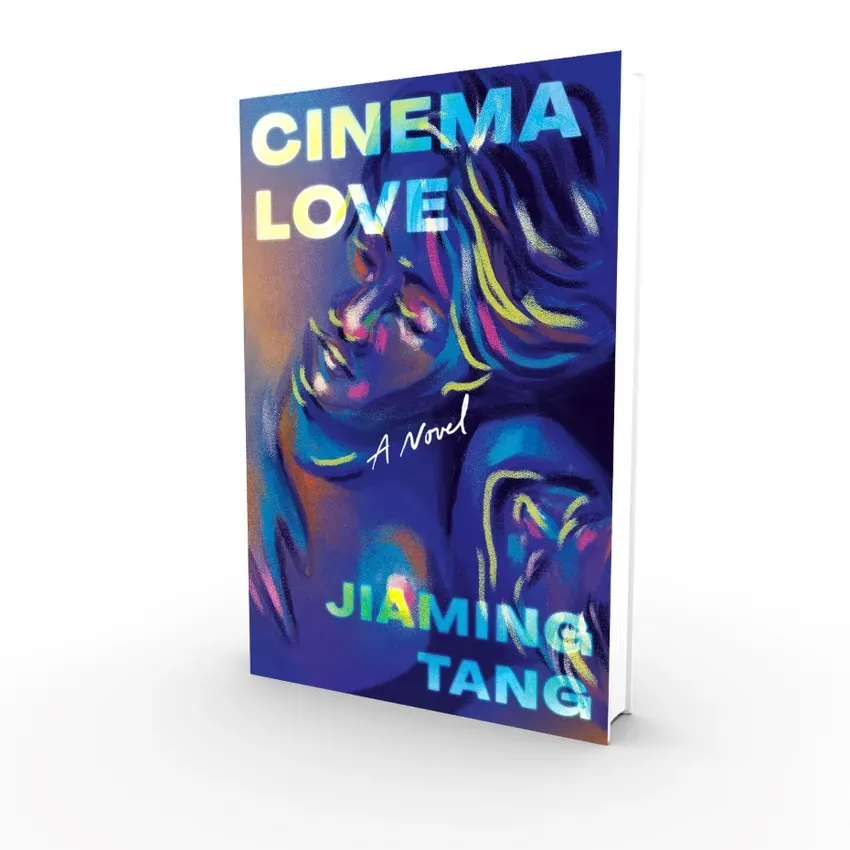At its core, Cinema Love is, well, a love story. The debut novel from Jiaming Tang follows the experiences of Queer Chinese immigrants over 30 years, from secret loves, to cruising in movie theaters, to making a life in a strange and at times hostile new country. While the book centers on love...both romantic and platonic... a different kind of love initially led Tang to put pen to page.
"I was writing it during the pandemic while I was away from home, and it was, in the beginning, this love letter to New York City's Chinatown that I could not be a part of, because I was living in Alabama in graduate school," Tang said in an exclusive interview with SGN. "It was a love letter to the people in that community. It was very much something that was for myself."
Much of the story is rooted in New York's Chinatown, an homage to the people and places that raised Tang. "For me, all I want is for people to read the book and I just want them to feel that I love this place," he said.
A major location in the story, the East Broadway Mall in Chinatown, is a special spot he remembers visiting frequently with his family. "It was a space where all the immigrants of the Fujianese would go because it's a place where you could get work uniforms, you could get lunch, you could get phone cards so you could call home. It was this hub," he recalled. Today, the mall is in decline, and Tang fears it won't make it to the end of the decade. The work he put into describing the mall's intimate details will hopefully go on to preserve its memory long after it's gone.
Much like the East Broadway Mall, other aspects of the book are rooted in a time and place inaccessible to readers. Cinema Love begins in rural Fuzhou. As a first-generation American, Tang was less familiar with Fuzhou and the immigration process, so he went to his parents for research. "There is a part of the book where the characters are immigrating to America and trying to find their footing as new migrants in New York City," Tang said. "A lot of that came from speaking to my mom and my dad and asking them what it was like."
Many pieces of the book were also inspired by Tang's observations on trips to China throughout his youth. As a teenager, he began to notice the ways Queerness was observed and treated in China. "I saw one of my mother's [male] friends touch another man's arm at a bus stop," Tang recalled. "The way he looked at the other man was so tender, there was so much desire in his eyes, but there was so much fear. It was the most ordinary thing in the world, trying to make contact with another human being, but because it was queer I think it became a very frightening thing for him."
That moment stuck with Tang throughout his life. As an openly Gay Chinese-American man, he found himself interested in the experiences of older Queer immigrants. "That was the image that became the thing that I was obsessed with for a lot of my emotional life. I was not a writer when I was seventeen and I saw that, but the image of a person trying to make contact with another person and being scared of that, that became the major grounding point for the book," he said.
"The central question for me is, what does it mean and what does it feel like to be Gay in a place where homosexuality doesn't culturally or socially exist?" Tang continued. "The second part of that question for me is, what does it mean to be somebody who loves the place that they come from despite not being able to express who they are? I don't know how I became a writer, but somewhere along the line, those questions and my obsession with Chinatown in New York City combined into a project."
That small pandemic project has become a critically acclaimed success. American critics have praised Cinema Love for its depiction of Queerness, immigration, and the pursuit of the American dream. However, it's the story's emphasis on solidarity that has hit home with many readers.
During the writing process, Cinema Love evolved along with Tang's understanding of his social identities. "In the beginning, I thought it was going to be a book where the main focus of the book was these Gay men. I thought it was going to be about their relationships and the fact that they couldn't love each other in public," Tang said. "But what happened was the book ended up being about the women who were married to these men."
As Tang explored real stories of LGBTQ+ Chinese immigrants, he found a common throughline in the importance of community. "The emotional core in the book to me is this group of women who make Queerness possible," he said. "My perspectives on what it means to be a Gay person and what it means to belong to a Queer community evolved in those years as a part of the writing. I want to represent with dignity and sincerity, the women in my life who made it possible for me to be who I am, and I try to do that in the book. That's sort of the evolution there."
Cinema Love is a heartbreakingly resilient story, written by, for, and about love. The novel is a love letter to Tang's community, an embodiment of the allies who give him strength, and a testament to the bonds shared in public and in private by those who were told they didn't exist.
Support the Seattle Gay News: Celebrate 50 Years with Us!
As the third-oldest LGBTQIA+ newspaper in the United States, the Seattle Gay News (SGN) has been a vital independent source of news and entertainment for Seattle and the Pacific Northwest since 1974.
As we celebrate our 50th anniversary, we need your support to continue our mission.
Your contribution will ensure that SGN remains a beacon of truth and a virtual gathering place for community dialogue.
Help us keep printing and providing a platform for LGBTQIA+ voices.
How you can donate!
Using this Link
Text "SGN" to 53-555
Or Scan the QR code below!



